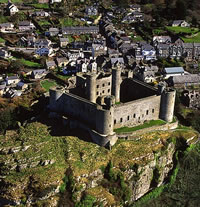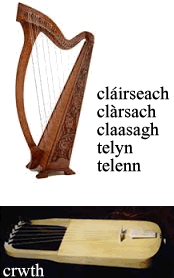Yesterday I met some Russians who are in Bangor for Celtic-Slavic language conference. They both speak Welsh and one of them teaches Welsh in Moscow. We got chatting, mainly in Welsh, and it turned out that they know friends of mine who are studying or doing research in Aberystwyth, and they also know Russians I met while studying Irish in Donegal in Ireland. The world of Celtic studies is quite small, and the world of Slavo-Celtic studies is even smaller, so these connections weren’t a great surprise.
One advantage of learning lesser-studied languages like Welsh and Irish is that you can become part of relatively small communities of learners, and can possibly become part of small native speaker communities as well. People who learn such languages come from many different countries, so while the languages themselves may only be spoken in particular parts of particular countries, by learning them you can become part of a world-wide community of learners. So if you meet other learners or native speakers on your travels, it’s quite likely that they will know some of the same people you know. At the Polyglot Gathering in Berlin, for example, I met a Swedish guy who has studied Irish in Donegal, and found we had friends and acquaintances in common.
There are also links between different minority and endangered language communities. For example, Manx-speaking musicians, singers and dancers regularly take part in inter-Celtic festivals, such as the annual one in Lorient in Brittany, and have contacts with Sámi-speaking communities in Norway, and with Jèrriais speakers in Jersey.

